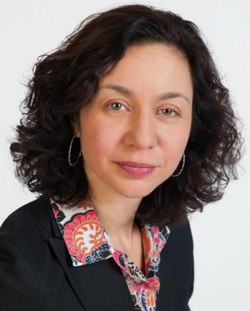Mayor de Blasio's Vision Zero Action Plan contains a number of initiatives to improve cab driver safety, including "black box" technology to monitor cabbie behavior. TLC Commissioner Meera Joshi told the City Council in early May that the agency has issued RFIs for a telematics pilot program, but she didn't mention the program during testimony at Thursday's council budget hearing.
She did explain the TLC's current disciplinary process. Responding to a question from council member and transportation chair Ydanis Rodriguez, Joshi said TLC inspectors do field enforcement and issue summonses based on observed cab driver activity. A second group within TLC prosecutes offenses in an administrative court, Joshi said. The court falls under the auspices of the Office of Administrative Trials and Hearings, a city agency that is independent of the TLC.
Rodriguez, himself a former livery driver, told Joshi that the council wants to see the TLC emphasize safety and ramp up enforcement against reckless cab drivers, while making sure drivers are treated fairly.
Rodriguez asked that the TLC hold a Vision Zero town hall for cabbies. "I think it's an excellent idea," Joshi said.
Joshi testified after representatives from the MTA. Here are more highlights:
- The FY 15 TLC budget includes $1.1 million in new funding for Vision Zero, Joshi said. Funds will be allocated for what Joshi called a "safety squad" -- presumably the joint TLC/NYPD enforcement effort she mentioned at a council hearing earlier this month -- PSAs for passengers, and educational materials for drivers.
- Joshi said removing unlicensed cabs is "the most effective way to keep our streets safe." She told the council again that the TLC now has unlimited capacity to tow and impound such vehicles.
- The TLC won't be issuing any more boro cab permits, Joshi said, until the agency has "a good understanding about how the program has worked so far." There are currently 5,000 cabs that pick up street hails outside the Manhattan core, and 1,000 more permits were issued for cabs that are not yet on the street, Joshi said. Mayor de Blasio, whose campaign was partially funded by yellow cab owners, criticized the Bloomberg initiative as a candidate. Dana Rubinstein of Capital New York has a good analysis of where the program stands as of Thursday.
- In his statement before the TLC segment of the hearing, Rodriguez proposed a city Vision Zero funding initiative to provide money to "grassroots groups" who promote traffic safety.
- Rodriguez asked if the MTA was in talks with the Port Authority regarding the George Washington Bridge Bus Terminal. He said the authority's plans include removing direct access between the terminal and the A train at 175th Street. (Rodriguez and other electeds held a rally to protest the project today.) MTA spokesperson Lois Tendler said the agency is working with the Port Authority and Community Board 12 to deal with the impacts.
- Tendler told Council Member Laurie Cumbo, whose district includes parts of Fort Greene, Clinton Hill, and Prospect Heights, that there were no plans to bring back the B51 bus, which ran between Brooklyn and Manhattan before it was lost during the 2010 service cuts. Tendler said the B51 had low ridership, buses were usually mired in traffic, and the service was redundant. Cumbo asked that the MTA reconsider, as the bus was popular with seniors in her district, who can have trouble accessing alternative buses and trains.
- As he has before, Rodriguez encouraged the MTA to explore the possibility of selling development rights above the 207th Street rail yard, in Inwood. He said the city could build a "tech community" with affordable housing there. Tendler invited Rodriguez to submit a proposal, and Rodriguez said he would.






